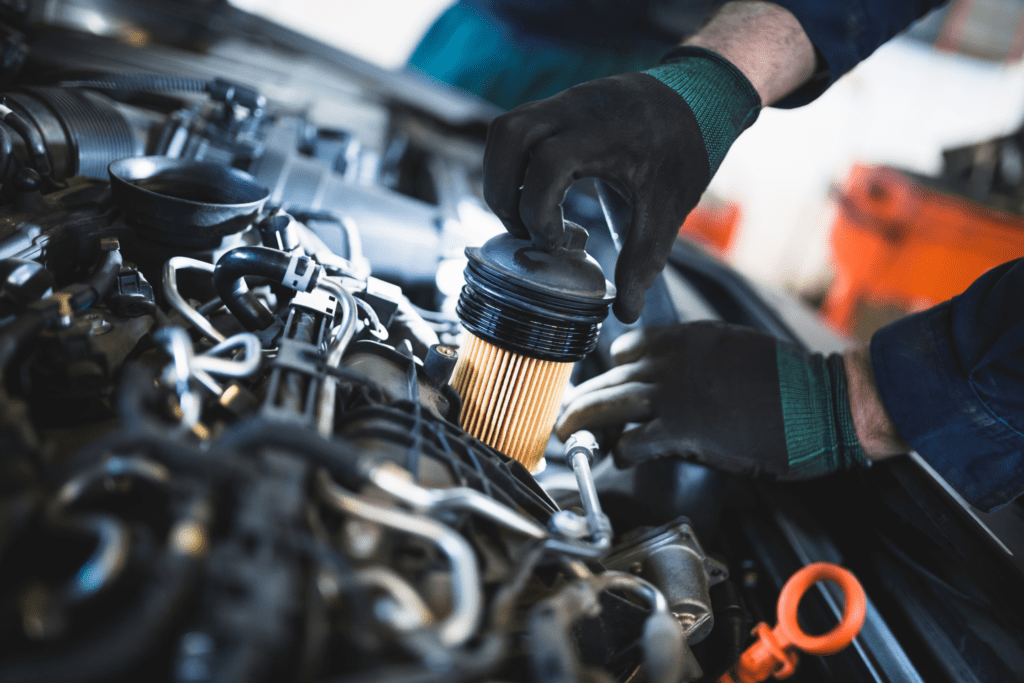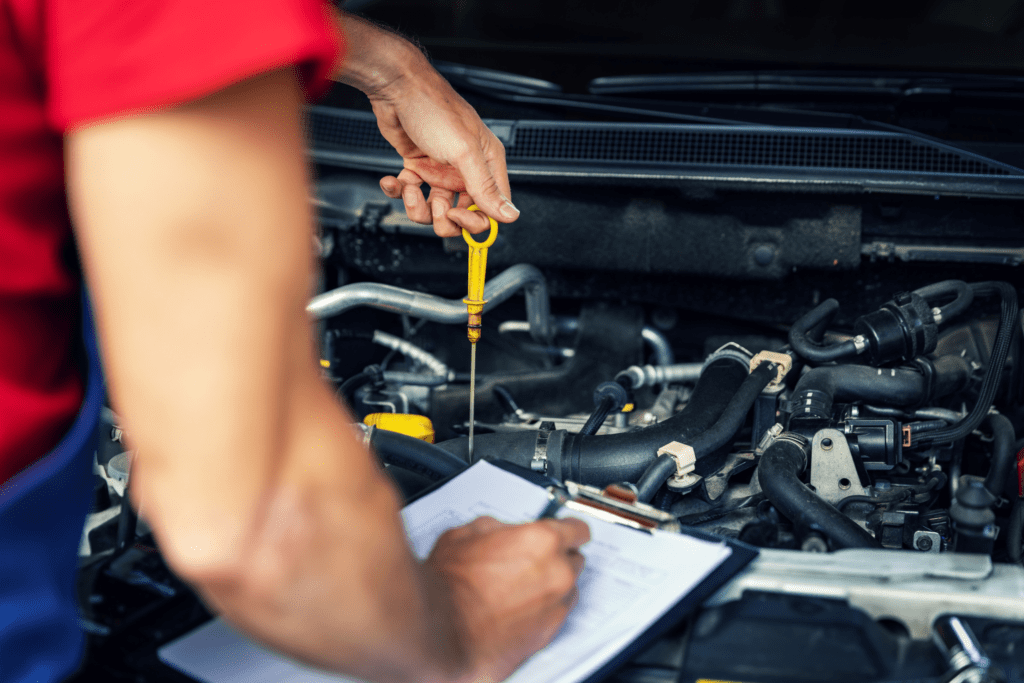5 Ways to Prevent Expensive Engine Repairs
Your vehicle’s engine is the heart of its performance and longevity. Think of it as the heart of your vehicle’s vital components. Without it beating as intended, the rest of your vehicle isn’t going anywhere.
Just like we preserve our health, it’s a good idea to ensure your engine’s well-being through regular maintenance and other proactive measures.
Anyone who has ever lived through the stress of unexpected engine repairs can confirm it leaves you with a major financial blow – and sometimes stranded alongside the road.
Preventing expensive engine repairs in Albuquerque isn’t difficult if you’re a responsible vehicle owner. In this blog, we discuss the 5 proven ways to prevent expensive engine repairs.
1 – Get Regular Maintenance
Just like any other machine, your vehicle’s engine requires regular maintenance to function at peak performance. Every car, truck, and sport utility vehicle comes with a scheduled maintenance plan provided by the vehicle’s manufacturer.
One of the smartest things you can do is follow that plan, which includes guidance on when to schedule routine maintenance for all components.
When it comes to protecting your engine, the manual spells out specifics on:
- How often to get oil changes.
- What filters and oil to use.
- How to conduct fluid checks.
Proper maintenance keeps your engine humming smoothly and allows for early detection of potential problems before they turn into costly repairs. Best of all, your trusted mechanic can spot potential issues early, which extends the life of your engine and protects your wallet from unexpected engine repair expenses.

2 – Use High-Quality Fluids and Filters
The quality of fluids and filters you use in your vehicle plays a vital role in preserving the engine’s health. You can scrimp on these items, but you’ll end up spending more money down the road when your penny-pinching leads to expensive engine repairs.
The best course of action you can take to protect the life of your engine is always to use the recommended grade and type of engine oil, coolant, and other fluids outlined in your owner’s manual. Your vehicle’s manufacturer is the subject matter expert when it comes to which fluids and filters provide better protection and performance for your engine.
Depending on the type of vehicle you drive, the manufacturer may suggest using traditional or synthetic oils. Conventional oil performs well in most driving conditions. However, it may break down and degrade faster than synthetic blends in the extreme temperatures and other severe driving conditions we experience here in Albuquerque.
If you’re not sure whether you want to use conventional or synthetic oil, ask your trusted auto mechanic. They won’t steer you wrong in which type of oil is best for protecting your engine.
Cheap or low-quality engine oil, coolant, and filters can lead to a myriad of issues, including increased friction, overheating, and engine oil contamination.
Investing in high-quality fluids and filters is a small price to pay compared to the costly consequences of engine failure.

3 – Monitor Fluid Levels
Your engine relies on more than oil to function optimally. Coolant and transmission fluid also play vital roles in protecting the health and longevity of your engine.
Regularly checking and topping up these fluid levels can mean the difference between an engine that purrs along and one that leaves you stranded along the side of the road.
Checking your engine oil isn’t difficult when you follow these steps:
- Park on level ground. Ensure your vehicle is parked on level ground. Let it sit with the engine off for a few minutes to allow the oil to settle back into the oil pan. Doing so provides a more accurate reading.
- Locate and remove the dipstick. Every engine has a dipstick – a long, slender rod – that rests in the engine. It’ll contain a brightly-colored handle that reads either “engine oil” or “oil.” Pull it out gently. Wipe the end of the dipstick clean using a paper towel to remove any existing oil. Then, reinsert it into the engine and pull it back out again.
- Check the oil level. When you pull the dipstick out after cleaning it off, you’ll see a minimum and maximum level reading marked on it. Ideally, your oil should be between those two marks. If it’s close to the minimum line, a mechanic may need to check for engine oil leaks.
Make sure you return the dipstick to its proper positioning before closing your vehicle’s hood. Check your oil at least once a month or before long trips.
4 – Change Oil and Filter Frequently
Residing in Albuquerque presents unique engine-related obstacles, particularly in the scorching summer season. Following the manufacturer’s recommended schedule for changing your engine oil and filter is crucial if you want to avoid engine repairs in Albuquerque.
Vehicle owners who try to go too long between oil changes risk some of the following consequences:
- Engine wear and damage
- Increased emissions
- Overheating
- Reduced fuel efficiency
- Risk of engine seizure
- Sludge formation
- Voided warranty
Engine oil is vital in lubricating and safeguarding your engine’s internal parts. By consistently adhering to oil and filter replacement recommendations, you can effectively prevent contaminants from circulating inside the engine. Once impurities get inside your engine, they can degrade the oil and cause substantial damage.

5 – Address Warning Signs ASAP
Ignoring warning signs and hoping they’ll go away isn’t a wise approach. Suppose you observe any abnormal noises, warning lights, or alterations in your engine’s performance. In that case, it’s time to visit a reputable engine repair service to have a qualified mechanic conduct a thorough inspection.
Some of the warning signs your engine sends include:
- Decreased performance, including loss of power, acceleration, or reduced fuel efficiency.
- Excessive exhaust smoke that’s thick and a bluish-white color might signal an oil leak or other serious engine issues.
- Engine overheating indicates a potential problem with your engine’s cooling system.
- Engine misfires make your vehicle feel jerky or shaky while driving.
- Increased vibration when your vehicle is idle might point to engine mount issues.
You know how your vehicle feels when it’s at peak performance. Never ignore anything that feels off. Trust your gut and schedule an appointment with a trusted mechanic skilled in engine repair in Albuquerque to nail down the problem before it becomes costly.
Get quality engine repair in Albuquerque
At Rio Grande Automotive, we appreciate our customers. As much as we enjoy seeing you, we understand if you aren’t eager to bring your vehicle in for expensive engine repairs.
Following our guidance is the most effective way to safeguard your engine against costly visits to our shop. Give us a call today to schedule your next routine maintenance service to keep your engine healthy.